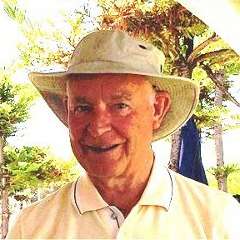Not only has it been twenty years since the State Opera of South Australia launched its Wagner extravaganza with its first production of the Ring, it is also 150 years since Die Meistersinger von Nürnberg premiered in Munich. To celebrate, the company mounted an exciting semi-staged version of Act 3 of the opera in Adelaide’s Festival Theatre (although some fully staged versions have less staging than this).
Director Andrew Sinclair highlighted universal positives in Wagner’s story – strong interdependent relationships between the characters, pride and confidence forged in community, romance and binding ties in one’s culture. (Although for Australians this might get expressed by “I still call Australia home”, or even “Come on Aussie, come on” – somewhat alternate cultural values!). And most communities contain at least one Beckmesser type person.
Act 3 encompasses the essence of The Mastersingers, setting the stage for conductor Nicholas Braithwaite to instil confidence in the Adelaide Symphony Orchestra and his singers. It opened with Hans Sachs, a tall, youthful, rich voiced Shane Lowrencev, sitting reflectively at his desk, surrounded by benches and shelves of shoes, his very stillness building anticipation of an engrossing, well measured, unfolding of the story. Lowrencev sang well, although in Sachs’ great signature “Wahn! Wahn!” monologue seeming to lose his way at times. Yet, as the other characters came, one by one, into Sachs’ shop, Lowrencev showed brilliance in the way he encouraged each to develop their role. Sam Sakker, a clean shaven David, sang sweetly and confidently. It is said that the second tenor in Meistersinger needs a voice strong enough to match that of Walter in the centrepiece quintet. Sakker was certainly well cast for this. Having won the London Wagner Society’s 2017 Singing Competition he continued to demonstrate his quality.
Bradley Daley’s rich voice and clear diction suggested a confident Walter, the budding mastersinger. Encouraged by Sachs’ reminiscence that dreams and poetry are great friends, the two worked together to compose the “Morning Dream Vision” song. Daley was in full control, yet managed to convey Walter’s indecision as to how good his song was.
This was not the first time Andrew Shore had portrayed Beckmesser, the pedantic town clerk with a grudge against Sachs, and a not so secret desire to wed Eva Pogner. His acting was convincing, evident as he entered Sachs’ shop still smarting from his previous night’s beating, expressing frustration by knocking shoes from their shelves, and slyly pocketing the love song lying on Sachs’ desk. He and Lowrencev’s voices were evenly matched, in fact rather exciting to hear them blending together. He left completely outfoxed by the shrewd cobbler.
Kate Ladner excelled as a remarkably fresh Eva, in flowing white dress. On the pretext of a poorly fitting shoe, she was there to see Walther. The lighting (clever designed by Donn Byrnes) changed as Walther entered, now dressed in his finery. Sachs discreetly stepped aside, allowing the two a bit of cuddle time before Walther (Daley) concluded his mastersinger song. Last one into the shop was Magdalena (Fiona McArdle) David’s fiancée, for the final quintet. As Ladner’s voice soared softly and effortlessly through the theatre, first joined by Sachs, then Walther, David and Magdalena, five measured voices thrillingly blended together. This quintet is always special in Meistersinger yet on this night it was super special, concluding with the light dimming and the curtain falling.
There were two tiered platforms for the chorus, seats for all soloists and a small podium for the contestants signified the final meadow scene. The Adelaide Symphony Orchestra, outstanding all night, masterfully established the excitement of the occasion, aided by some on-stage brass players. The scurrying chorus, dressed in black, added rich enthusiasm and lively animation to the gathering. We were left in no doubt this was a happy, joyous occasion. In the singing contest, Shore’s acting ability was able to underscore Beckmesser's humiliation, and Daley’s sweet tenor tone enhanced Walther’s success.
Lowrencev was spotlit as he delivered Sachs final paean to German art, convincing Walther to accept membership in the Mastersingers’ Guild, his passion and feeling a reminder to all of the importance of belonging, of pride in one’s heritage, and of treasuring bonds that unite a people together. With Walther and Eva hugging on the dais, and all the crowd dancing, singing and rejoicing, the curtain slowly came down.
This was a fitting tribute to the 20th anniversary of State Opera of South Australia’s ongoing romance with the music of Richard Wagner.




